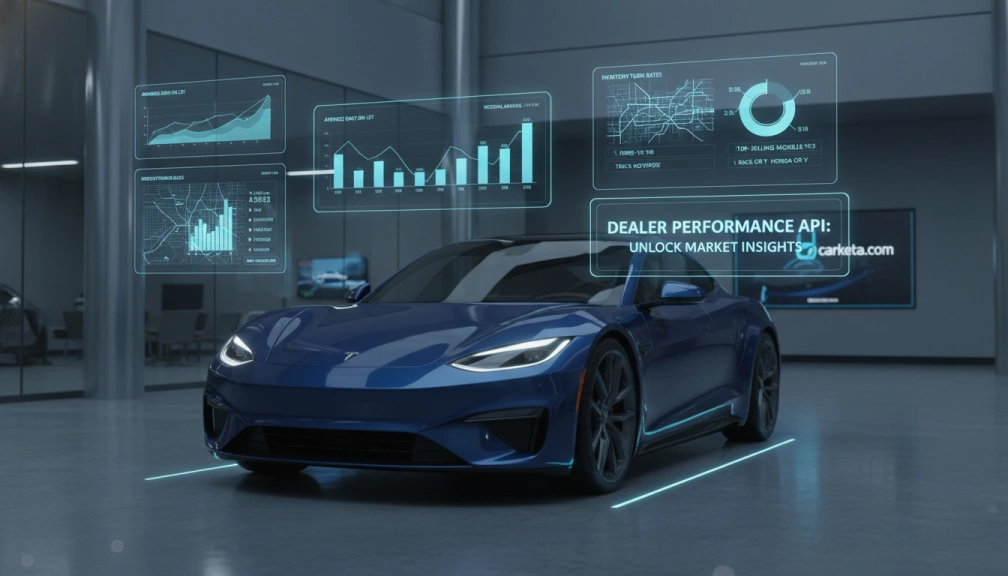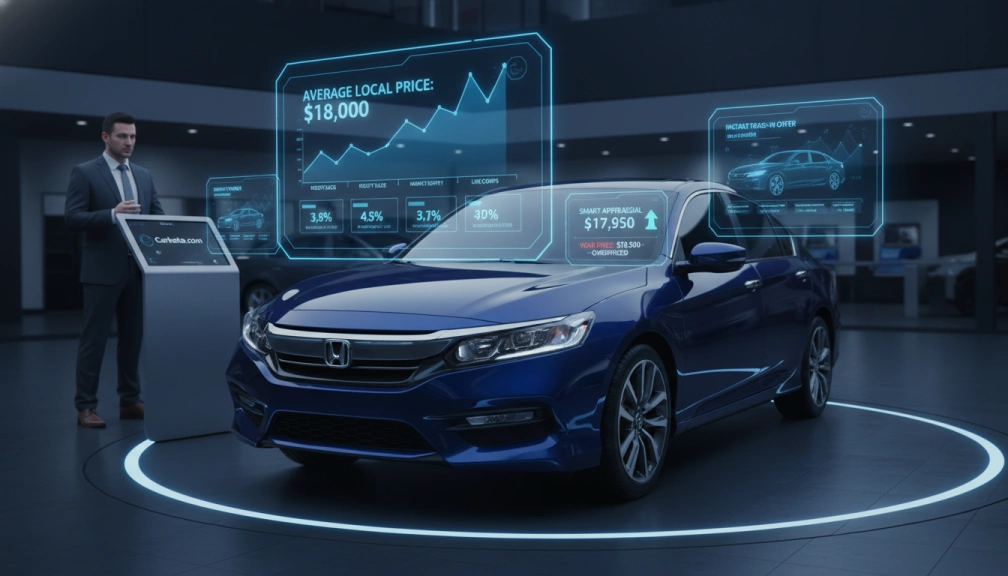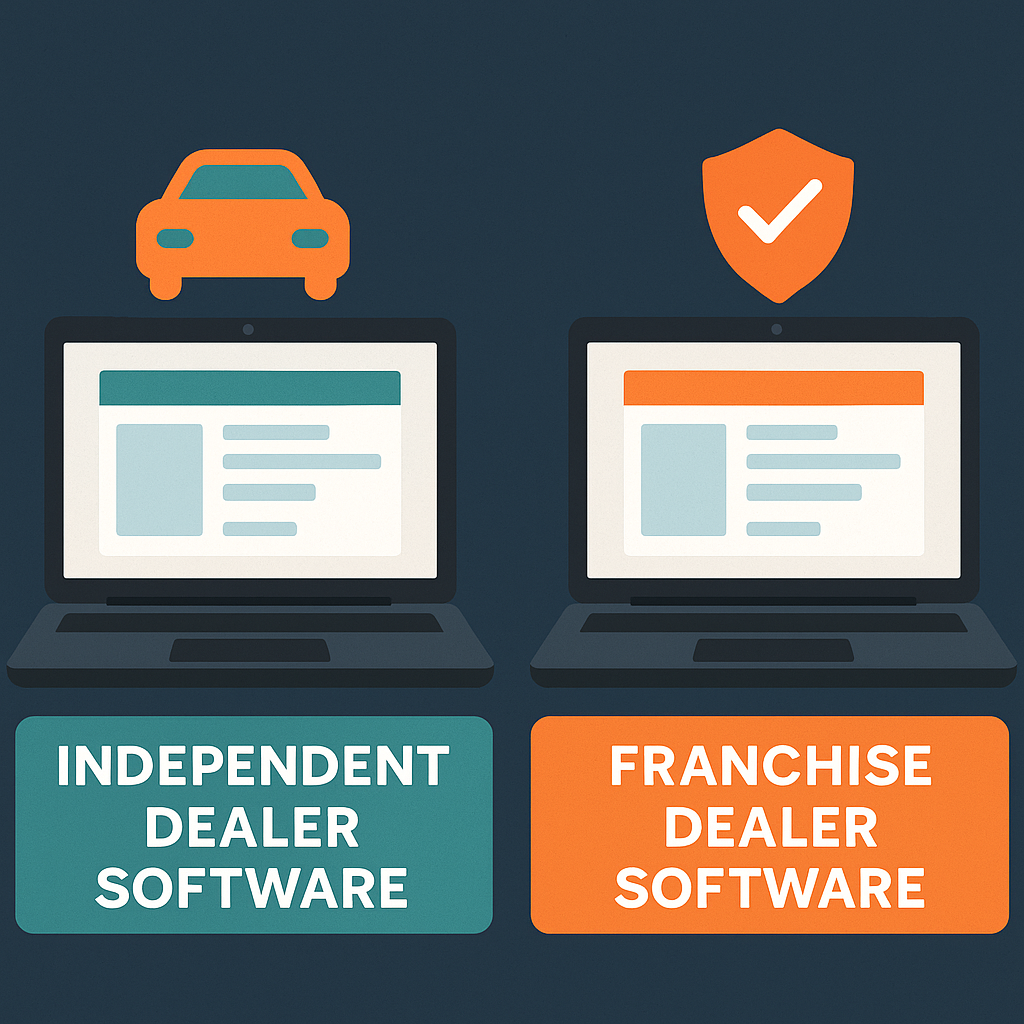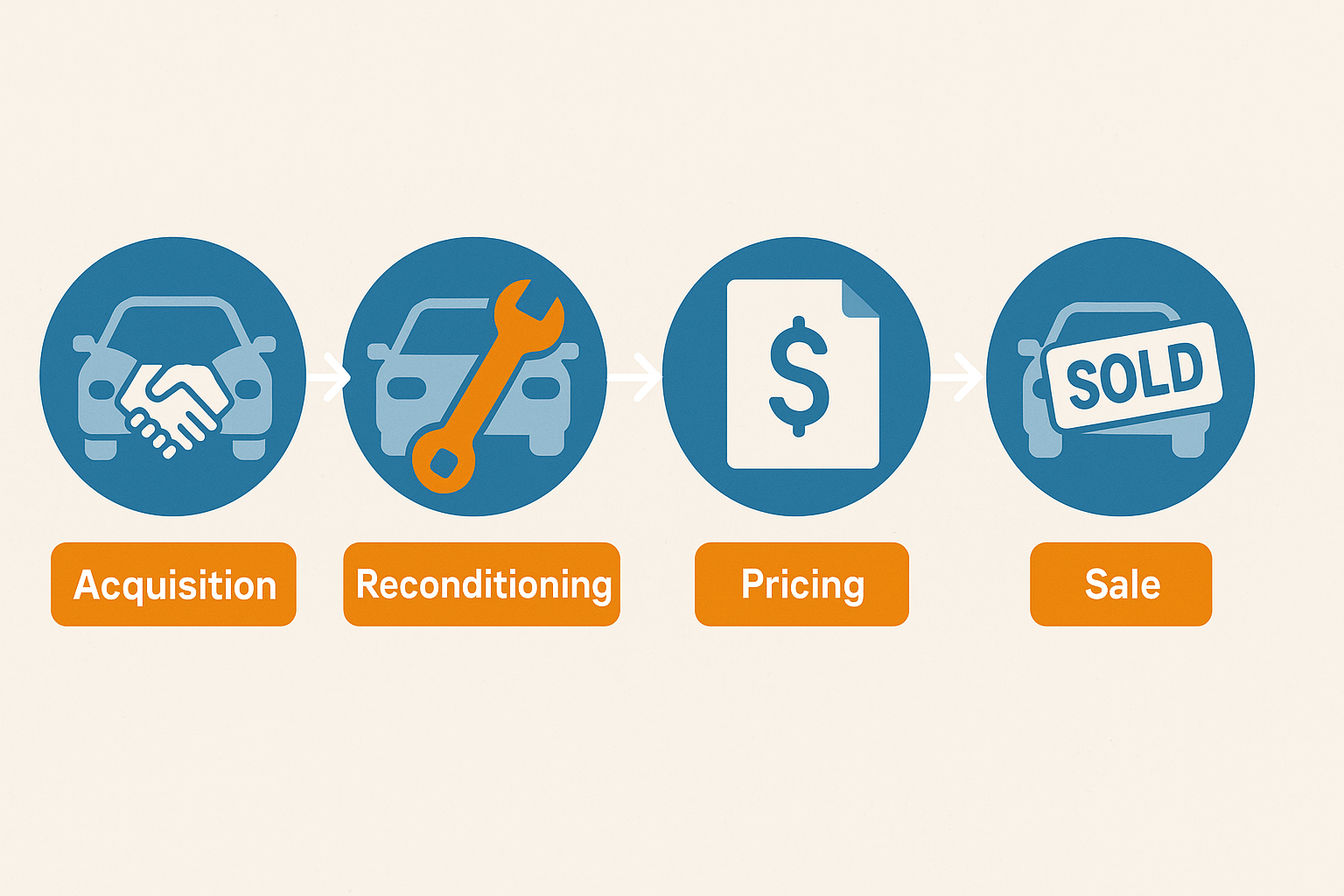Introduction to Dealership Accounting Software
Running a small car dealership comes with many challenges, from managing inventory to tracking sales, handling payroll, and keeping up with taxes. Unlike general accounting software, dealership accounting software for small car dealers is tailored to the unique needs of automotive businesses, providing essential tools for tracking vehicle expenses, financing deals, and ensuring profitability.
This article explores the key benefits of using dealership-specific accounting software, the essential features to look for, and how small car dealers can leverage these tools to make better financial decisions, streamline operations, and maximize profitability.
The Unique Accounting Needs of Car Dealerships
Unlike other small businesses, car dealerships handle complex transactions involving high-value inventory, financing, and tax requirements. Car dealers must accurately track each vehicle’s acquisition cost, repairs, and eventual sale value to understand profitability. General accounting software often falls short when it comes to these specific requirements, while dealership accounting software provides built-in functionalities designed to meet them.
Unique Challenges for Small Car Dealerships:
- High-Value Inventory Tracking: Each vehicle’s cost, including acquisition, reconditioning, and overhead expenses, needs precise tracking.
- Variable Sales and Financing: Tracking down payments, financing terms, and interest rates is critical for managing cash flow.
- Complex Tax Requirements: Vehicle sales require specific tax management, such as sales tax on vehicle purchases.
- Data Accuracy and Compliance: Ensuring compliance with accounting standards and avoiding costly mistakes is crucial, particularly for independent dealers.
Benefits of Dealership Accounting Software
Dealership accounting software provides specialized tools that improve efficiency and accuracy across various financial operations. Here’s how these tools benefit small dealerships:
1. Streamlined Inventory and Expense Tracking
- Vehicle Cost Management: Dealership software tracks each vehicle’s purchase price, reconditioning costs, and sales expenses, allowing dealers to calculate the total cost accurately. This helps dealerships understand their cost basis for each vehicle and set profitable pricing.
- Aging Inventory Insights: Software can flag aging inventory, prompting dealers to discount or move vehicles that have been on the lot too long, optimizing inventory turnover.
- Repair and Maintenance Tracking: For dealerships that recondition vehicles, accounting software tracks all maintenance expenses, ensuring every dollar spent on a vehicle is documented.
2. Simplified Sales and Financing Records
- Transaction Tracking: Dealership accounting software keeps accurate records of each sale, including payment methods, financing plans, and down payments.
- Financing and Payment Schedules: Tracking customer financing terms and payment schedules becomes much easier with dealership-specific software, allowing dealers to keep on top of pending payments.
- Tax Calculations: Automated sales tax calculations simplify tax reporting and help dealers avoid errors, which can lead to costly penalties.
3. Comprehensive Financial Reporting and Analytics
- Profitability Analysis: Dealership accounting software provides insights into profitability per vehicle, helping dealers understand which types of vehicles yield the highest returns.
- Expense and Revenue Tracking: Detailed revenue reports allow dealers to monitor overall performance and identify opportunities to cut costs or increase revenue.
- Cash Flow Management: Small dealerships rely on consistent cash flow to manage overhead. Accounting software helps monitor cash flow by tracking incoming payments, upcoming expenses, and financing obligations.
4. Integration with Inventory Management Systems
- Unified Data Access: Many dealership accounting software solutions integrate with Dealer Management Systems (DMS), ensuring data consistency across platforms and reducing manual data entry.
- Improved Decision-Making: With integration, dealers gain a comprehensive view of both financial and inventory data, allowing for more informed business decisions.
- Enhanced Efficiency: This integration ensures that all updates—whether inventory-related or financial—are immediately reflected in accounting records, keeping all departments aligned.
Key Features to Look for in Dealership Accounting Software
When selecting accounting software for a small car dealership, it’s essential to consider features that align with dealership-specific needs. Here are some must-have features for effective dealership accounting:
1. Vehicle Expense Tracking
- Look for software that provides detailed expense tracking for each vehicle, covering purchase price, reconditioning costs, and selling expenses. This level of detail helps you manage profitability on a per-vehicle basis.
2. Sales Tax Automation
- Accurate sales tax calculations are crucial, especially when managing multiple transactions daily. Automated tax management ensures compliance and saves time on tax preparation.
3. Financing and Payment Management
- For dealerships offering financing options, it’s essential to have tools that track financing terms, down payments, and customer payment schedules. This feature ensures all payments are up to date and accounted for accurately.
4. Financial Reporting and Custom Analytics
- Software with customizable reporting options enables dealers to track revenue, expenses, and profit margins. Analytics features also help identify high-performing vehicle types, peak sales seasons, and opportunities for growth.
5. Integration with Dealer Management Systems (DMS)
- Integrating accounting software with your DMS improves data flow, reduces duplicate entries, and streamlines operations. This integration is especially beneficial for small dealerships, allowing seamless updates across inventory and accounting functions.
Top Dealership Accounting Software Options for Small Dealers
Here are some of the top accounting software options designed to meet the unique needs of small car dealerships:
1. QuickBooks for Dealerships
- Overview: QuickBooks is a popular choice for small dealerships due to its affordability and versatility. While it’s not dealership-specific, QuickBooks can be customized to track vehicle expenses, handle tax calculations, and create detailed financial reports.
- Features: Expense tracking, sales and profit analysis, and sales tax management.
- Best For: Dealers comfortable with customizing templates for inventory and vehicle tracking.
2. EverLogic (QuickBooks Integration)
- Overview: EverLogic is built specifically for auto dealers and integrates with QuickBooks, making it an ideal choice for dealers already using QuickBooks for accounting. EverLogic offers inventory tracking, financing management, and customer tracking features tailored to dealerships.
- Features: Vehicle cost management, sales tracking, customer payment schedules, and DMS integration.
- Best For: Dealerships seeking a QuickBooks-integrated, dealership-focused solution.
3. DealerCenter Accounting
- Overview: DealerCenter offers a comprehensive DMS with integrated accounting features. This solution includes inventory management, customer financing tracking, and reporting tools designed specifically for car dealers.
- Features: Financing and loan tracking, vehicle expense reporting, and tax management.
- Best For: Dealers wanting a fully integrated DMS and accounting platform.
4. Xero with Auto Dealership Add-Ons
- Overview: Xero is a cloud-based accounting software with add-ons available for auto dealerships. These add-ons support inventory tracking, cost management, and payment processing, making Xero flexible for small dealers.
- Features: Inventory and sales tracking, cost analysis, and mobile-friendly interface.
- Best For: Small dealerships wanting cloud-based accounting with customizable add-ons.
When to Transition to Dealership Accounting Software
For small dealerships, transitioning to dealership accounting software may depend on business growth and operational needs. Here are a few signs that it might be time to adopt or upgrade your accounting solution:
- Increasing Inventory Volume: As inventory expands, manually tracking vehicle costs, sales, and taxes becomes challenging and prone to errors.
- Complex Financing Options: If your dealership offers multiple financing plans, tracking each payment schedule accurately is essential to maintain cash flow.
- Detailed Financial Reporting Needs: If you’re looking for insights on profitability per vehicle, expense tracking, or overall dealership performance, dealership accounting software offers the tools you need.
Conclusion: Why Dealership Accounting Software Matters
Dealership accounting software is essential for small car dealers who want to stay financially organized, ensure compliance, and make data-driven decisions. From tracking each vehicle’s profitability to managing financing plans and handling tax calculations, dealership-specific accounting software simplifies complex processes and provides insights that help dealerships thrive.
For dealerships managing tight budgets, software that integrates with Dealer Management Systems offers a powerful advantage, uniting accounting and inventory data. By investing in dealership accounting software, small car dealers can reduce costly errors, increase operational efficiency, and maximize their bottom line.
Explore our related articles to find additional tools for streamlining your dealership’s operations:






